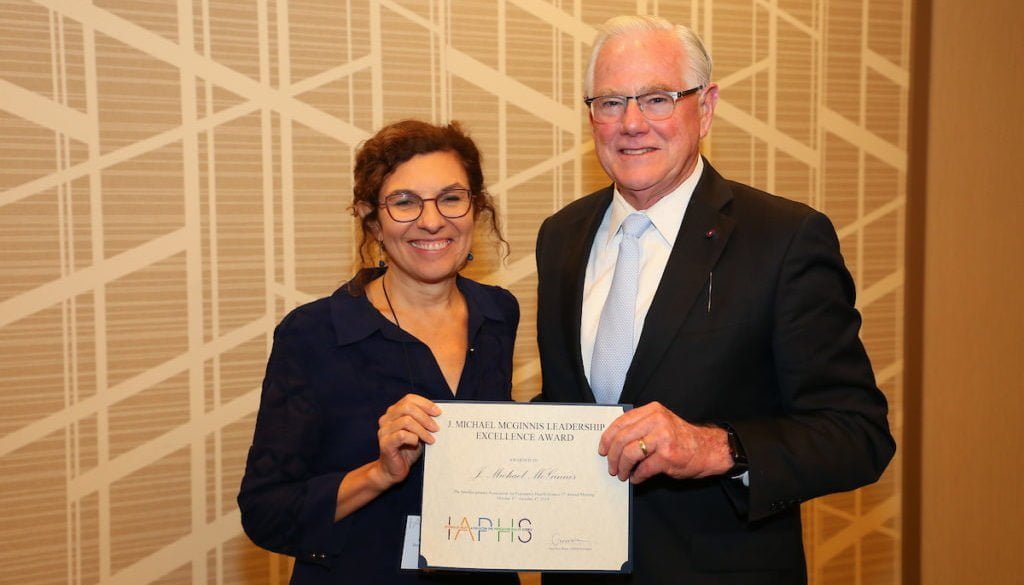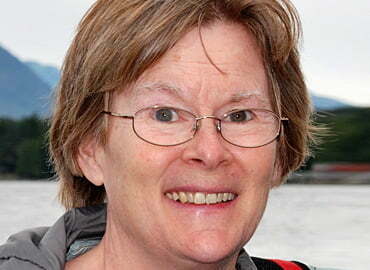IAPHS Rocks Seattle: Our 2019 Conference Highlights
Christine BachrachSeattle rocked with population health energy October 1-4, 2019, as over 460 scientists and practitioners attended IAPHS 2019, where the theme was “Local, national, global impacts on population health.” This Blog will features posts about selected sessions in the coming weeks. IAPHS members will also be able to view videos of the three plenary sessions and seven other sessions – we’ll let you know when they are posted.
In the meantime, here are a few of my favorite moments:
• Ana Diez Roux named the three biggest challenges for population health science in her presidential address: (1) fully reaping the value of multiple methods, (2) broadening the disciplines we engage beyond social sciences and public health; and (3) addressing big issues— such as climate change—in our research.
• Brittney Butler and colleagues from RWJF’s Health Policy Research Scholars program called for a more integrated approach to understanding and measuring structural racism. Butler notes that measures should capture the interactive effects of racism across different sectors and adapt to changes across contexts and time in how structural racism manifests and affects health. A real challenge!
• Two excellent sessions on population health initiatives in Seattle – one delving into three action oriented projects to improve housing and health and one on the effects of municipal policies on health. Great to hear from those on the ground in our host city!
• A great session on methods for population health research including work from RWJF Evidence for Action questioning conventional wisdom on effect sizes and power calculations. The panelists suggested a need to tailor power calculations to effects that the end users of research would find important! Also Anna Zajacova called for researchers to incorporate pain as an outcome measure in population health studies—very persuasive!
•Bruce Link at the 2019 IAPHS conference in Seattle. A self-described “rant” from Bruce Link in which he challenged us to broaden our understanding of health disparities by focusing attention on how advantaged populations behave, not just on those lower on the SES ladder. Bruce argues that the self-interested behaviors of the privileged collectively create structures that reinforce and widen the inequities in the population overall.
• Three poster sessions with exciting findings on topics ranging from opioid use to health care to child development and much, much more. Great presentations and a lot of great exchanges – plus excellent eats on the reception table. Congratulations to poster award winners Brandon Moore (2 awards!), Alexis Dennis, Savannah Larimore, Shannon Whittaker, Melissa Evans, Dovile Vilda, Amy L. Non, John Robert Warren, and Allison Maria Lacko.
• A wonderful tweet from Carley Riley: Let day 2 of @ia4phs #pophealth2019 begin! If you’re interested in learning and talking about how innovative methods can be applied through transdisciplinary research to finding solutions to real world problems, this conference is for you! Thank you, Carley!
Thank you to all attendees, speakers, organizers, volunteers, discussants, and program planners for a fantastic and inspiring #pophealth2019 conference. We’re building a phenomenal community, thanks to you all. See you in Minneapolis in 2020.
And a final huge thank you to the conference sponsors – you made it all possible.
What are your favorite highlights or take-away messages?






All comments will be reviewed and posted if substantive and of general interest to IAPHS readers.